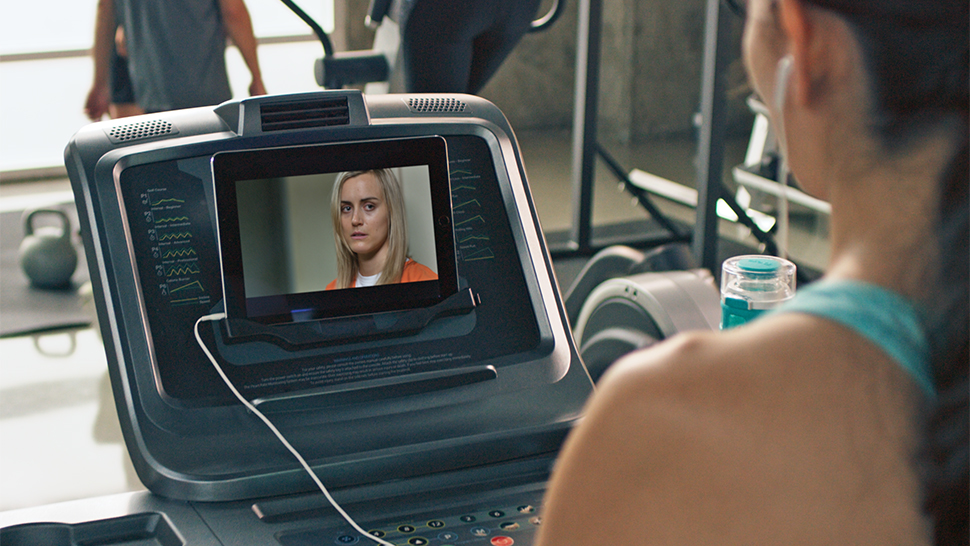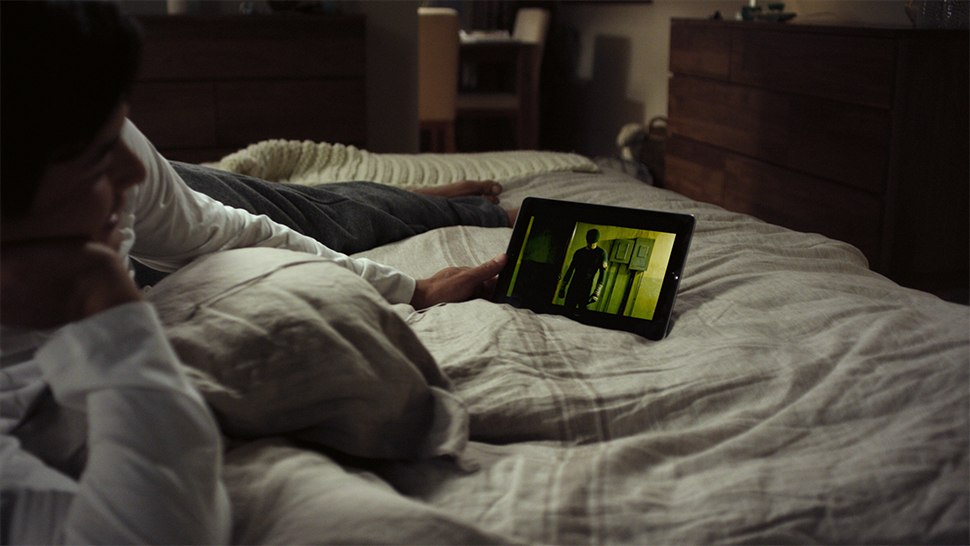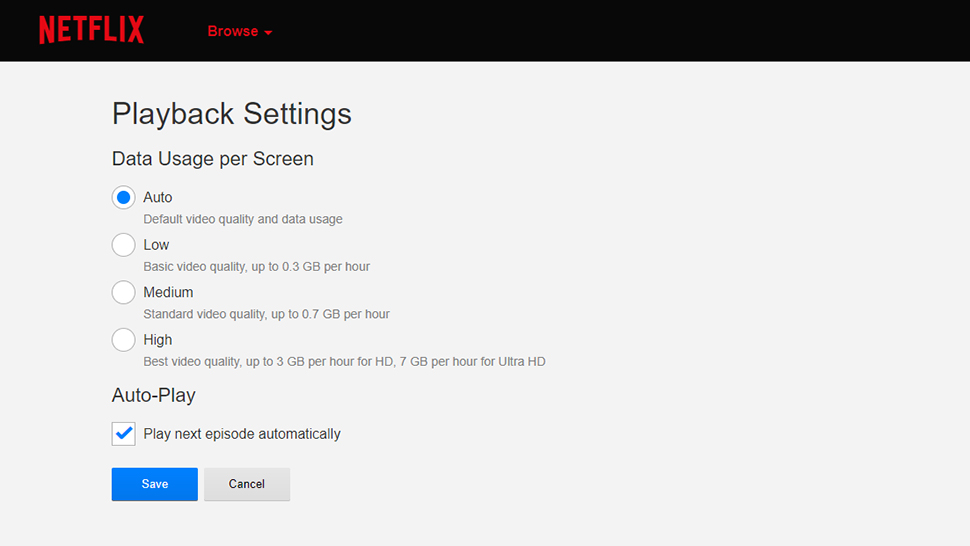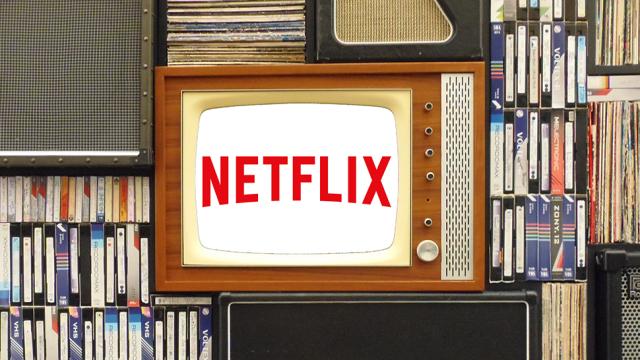There’s no doubt that settling down into a marathon TV viewing session is one of the most enjoyable ways to spend an evening (or morning or afternoon), but it’s also true that you can have too much of a good thing. If you want to know the ground rules for binge-watching without harming your health, we’ll outline them below.
Image: Tracy Thomas/Unsplash/Netflix
The Science Of Binge-Watching

Image: Netflix
Countless studies have been carried out on our obsession with TV, many of them long before the invention of Netflix. Add to that all the general research that’s been done on sitting still and there’s a wealth of science to tap into if you want to know how spending hours on the couch affects your body (that is if you do binge-watch on the couch).
It’s probably no surprise to you that binge-watching has been linked to having a negative effect on the amount and quality of sleep we get. Although only a few studies up to this point have focused specifically on the relationship between binge-watching and shut-eye, and a casual relationship between the two has not been clearly determined, some of the preliminary findings are concerning.
“Bingeable TV shows have plots that keep the viewer tied to the screen.,” Liese Exelmans told University of Michigan news. Exelmans is a researcher at the Leuven School for Mass Communication Research in Belgium and worked on a 2017 study found in the Journal of Clinical Sleep Medicine titled “Binge Viewing, Sleep, and the Role of Pre-Sleep Arousal.” She went on to say, “We think [viewers] become intensely involved with the content, and may keep thinking about it when they want to go to sleep.”

Game of Thrones, a very bingeable slow that could be ruining your sleep. (Image: HBO)
The quality of addictive television might not be the only reason binging effects sleep. You’ve probably noticed the night modes now creeping into every desktop and mobile operating system. There are even apps that accomplish the same thing, reducing the amount of blue light glowing from our screens — that’s the wavelength of light believed to suppress the production of melatonin in our bodies, the chemical trigger that tells us it’s time for sleep.
If you’re sleep quality is poor, or you’re not sleeping enough, whether from binge-watching or baby watching, that can have a big knock-on effect. It’s been pretty well established how good sleep is for us, and a lack of it can make it harder to concentrate during the day. In the long term, scientists have even linked poor sleep quality to a higher risk of obesity, heart disease, and other serious health problems.
“Binge watching can be problematic if it means staying up past your usual bedtime,” Nitun Verma MD, a spokesperson for the American Academy of Sleep Medicine (AASM), told Gizmodo. “This means less sleep obviously, but can also disrupt your circadian rhythm. That means a long night can disrupt your sleep the night after too.”
Even if you’re getting enough sleep, sitting still for too long in one place is generally considered bad for your health, as office workers will probably also be aware. Studies have linked too much sitting with numerous health issues, from weight gain to a higher risk of dementia.

Twin Peaks, another show ruining your sleep. (Image: Showtime)
If all that wasn’t enough to make you reconsider your binge-watching habits, one recent study also found that binge-watching a show rather than stretching it out over days or weeks means you’re not going to remember it was well and will enjoy the whole experience less.
“Put simply, our work shows that the schedule you use to watch shows does have an impact on your learning, memory, and enjoyment,” study lead Jared Cooney Horvath from the University of Melbourne in Australia told Gizmodo. “Bingeing is not an innocuous replacement for traditional daily or weekly viewing — it is a wholly unique process with its own impacts and consequences.”
The Australian study only covered 51 people, so we shouldn’t jump to any conclusions about the population at large just yet, but it’s an interesting look at how this different method for absorbing TV could be changing the way we respond to it.
Even if all our binge-watching might be ruining our sleep, or even sucking the fun out of the programming we watch, it’s still tempting to click play on just one more episode… but there are ways to binge-watching and staying healthy.
What You Can Do

Image: Netflix
As with most kinds of treats — chocolate, a cold beer — TV watching is best practised in moderation. You may think you want another episode of House of Cards, just like you might think you want another beer, but 18 episodes (or beers) later the benefits aren’t so clear cut.
If you do find yourself regularly binge-watching (and 80 per cent of young adults say they’re binge-watchers), then try not to do it for two or three days in a run. While your body can recover from one night staying up in front of Netflix, just like it can recover from a heavy night on the town, it gets harder to pull itself back to good health if you’re persistently repeating the behaviour.
Some small changes may make a difference. If you didn’t know, you can switch off Netflix’s autoplay feature: On the web you need to click your avatar then choose Account and Playback settings to switch it off.
The American Academy of Sleep Medicine (AASM) recommends setting an episode limit each night before you start watching, and sticking to it, no matter how dramatic the cliffhanger. Now that Netflix allows downloads, that might be one way of regulating how many episodes you watch at once, or you could schedule time in at the weekend to avoid overdoing it in the week.

Turn autoplay off… (Image: Screenshot)
“Setting an alarm is best as it will remind you to stick your regular routine,” suggests Verma, and that’s something your phone can do for you very easily (we’ve also written before about apps that can limit your time on particular websites).
Other tips from the AASM include making use of the night mode or dark mode on your devices to reduce the blue light bombarding your eyes in the evening, and doing your binge-watching on a TV rather than a phone, tablet, or laptop if possible. Watching on a TV downstairs is better for your eyes than taking your iPad to bed with you, and makes it easier to stop too.
As for spending all that time sitting still, the same advice applies as for staying crouched at a desk for too long. Maybe split up your binge-watching into sections and take a stroll around the house between episodes to chew over the latest plot developments, just to get your body stretched and your circulation flowing.
Ultimately though the healthiest way to binge-watch is not to do it at all, or to only do it infrequently. But that’s down to you and your willpower. Remember that the episodes you’ve got queued up will still be waiting for you when you come back, and that in the long run, maybe you’ll enjoy it more as well.
